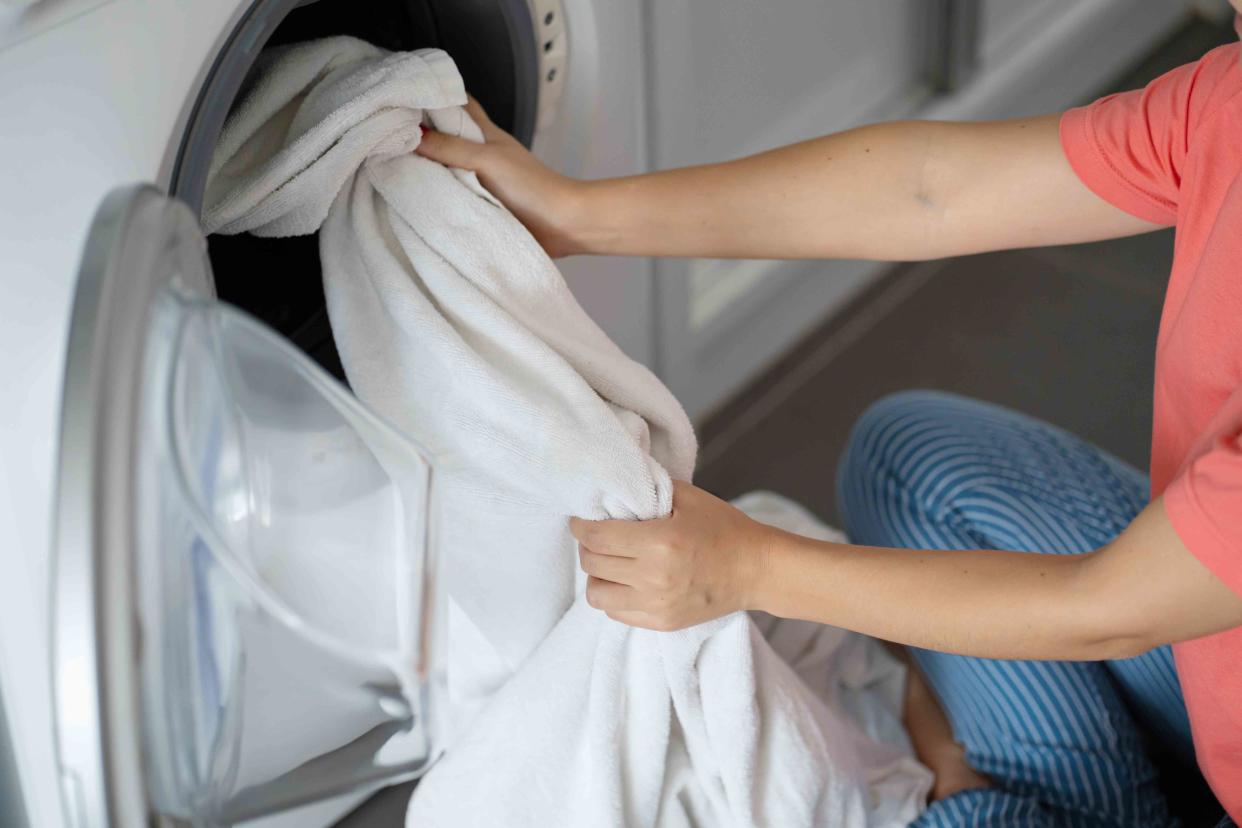6 Items You Should Wash Before Using, According to Pros

Kateryna Kukota / Getty Images
We all know that we should wash household items like clothes, dishes, and linens regularly, but are you being diligent about washing new items before you use them for the first time as well? As tempting as it is to use brand-new items as soon as you bring them home, there are a few things you should definitely make sure that you wash first.
While new items may look clean, here are 6 things you should always wash before using, according to pros.
Kitchen and Dining Tools
Experts agree that anything that is used to prepare, serve, or store food should definitely be washed before being used for the first time. This includes drinkware (like glasses, mugs, and reusable water bottles), utensils, plates and bowls, storage containers, cookware like pots and pans, removable parts of small appliances (like coffee maker carafes, food processor blades, etc.), cast iron products, and more.
A quick wash will help to ensure that dust and residual particles from the manufacturing and packaging process are removed and don’t make their way into your food, says Justin Carpenter, owner of Houston-based cleaning company Modern Maids.
Bed Linens
Keep your bed clean and hygienic and make sure you always give new bed linens a wash before you use them. According to Delah Gomasi, CEO of MaidForYou, these items are on his ‘must-clean’ list to ensure left over chemicals, dirt, and grime that can be picked up from the manufacturer’s factory or transportation process are eliminated.
“You’d be surprised at just how dirty a factory floor can be and these germs and pathogens can easily make their way into your brand new linens,” Gomasi says.
Cleaning Tools
This may seem counterintuitive, but yes, you should wash cleaning tools like mops, microfibre cloths, reusable dusters, and even sponges before you use them for the first time. This is because, just like many other items on this list, cleaning tools can pick up dust and bacteria from the manufacturing process.
However, since these items are specifically designed to pick up and hold onto dust and other small particles, they are particularly susceptible to it, and even a small layer of residue can affect the items' effectiveness as well, says Rebeca Medina, owner of Tidy Home Cleaning Services in Houston.
“Just make sure to wash microfiber cloths separately from other fabrics to make sure they don't get clogged up with lint, and don't use fabric softener or you'll leave a layer of residue similar to what you were trying to remove in the first place,” Medina says.
Towels
After getting nice and clean in the shower the last thing you want is to use a dirty bath towel. So while that stack of brand new towels may look clean, it’s always best to wash them anyways before using them for the first time to ensure dust, particles, and bacteria are removed, says Carpenter. This goes for bath towels, hand towels, and kitchen towels too.
Clothing
New, second-hand, and hand-me-down clothing alike should all be washed before being worn for the first time. This is particularly important for undergarments and athletic wear like leggings and sports bras that are worn close to the skin, says Kristen Higgins, Consumer Product Testing Expert at Purex®.
“Along with the journey from the manufacturer to the store shelf, there are a lot of potential touchpoints for germs and residues to come in contact with a garment before you get it home,” Higgins says.
Plus, even if the items are new, you never know who has tried the clothing on in the store or bought and returned the clothing before you purchased it. Always check the clothing labels for washing and drying instructions prior to washing for the first time.
Baby Items
Babies are super sensitive to the world around them (and are known for putting everything in their mouths), so it makes sense that new baby items should be washed before they are introduced to your little one. Think blankets, clothes, pacifiers, toys, teethers, bottles, and more. A light wash with mild, baby-safe soap and warm water is all that is needed to ensure that bacteria and germs are removed, says Carpenter. However, if you have a dishwasher, that is also a great option for dishwasher-safe items to ensure they are fully sanitized.
Read Next: 15 Bad Cleaning Habits You Need to Break

